Cultural Diversity and Reflections for Healthcare Workers
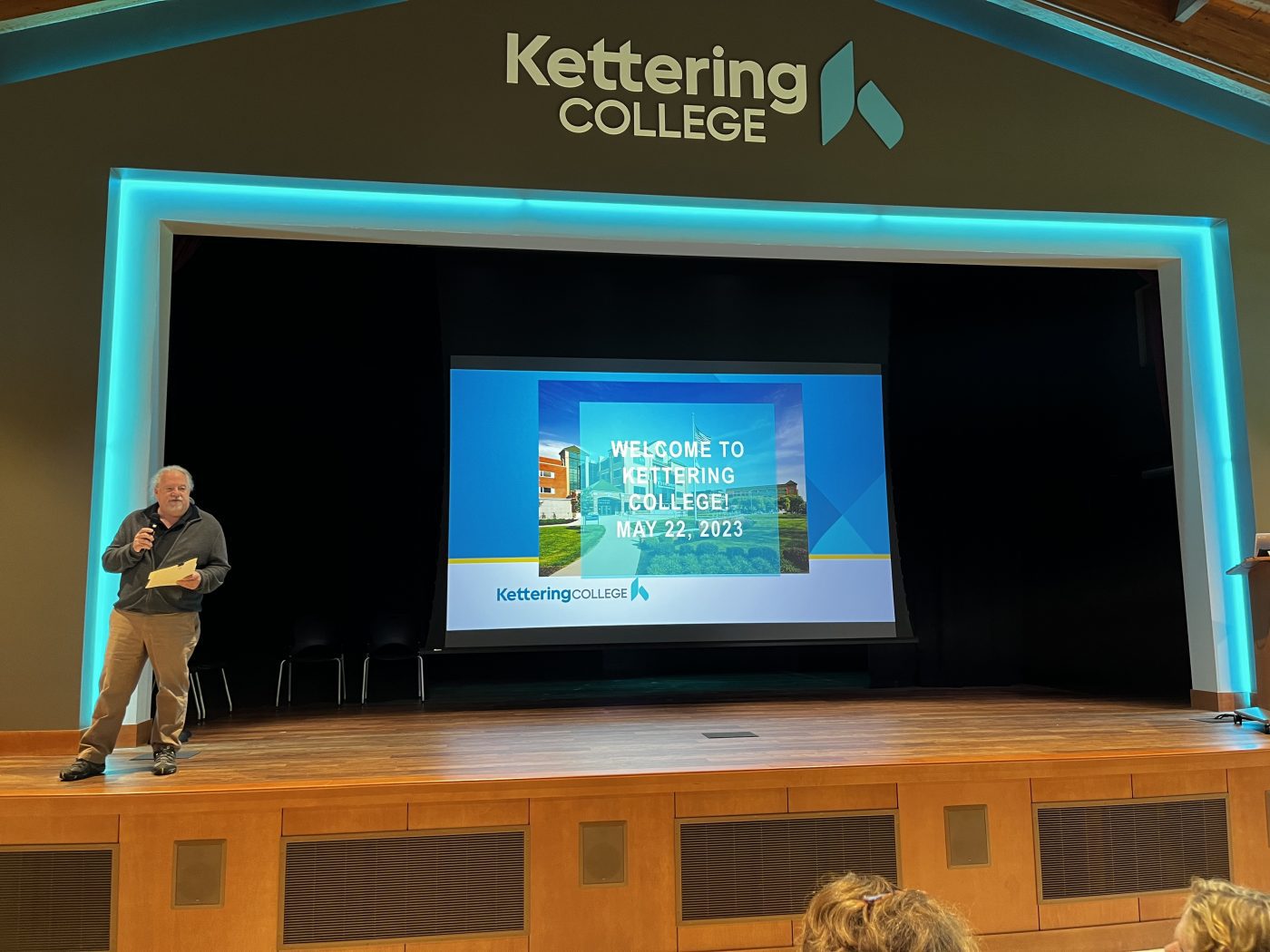

In Celebration of World Cultural Diversity Day, students, faculty, and staff came together to discuss diversity and its relationship to healthcare. Areas of focus included gender identity and how it pertains to the LBGTQIA+ community; Muslims and healthcare; and a discussion by two Kettering College students on survivors’ guilt following their decision to leave Ukraine and continue their studies abroad.
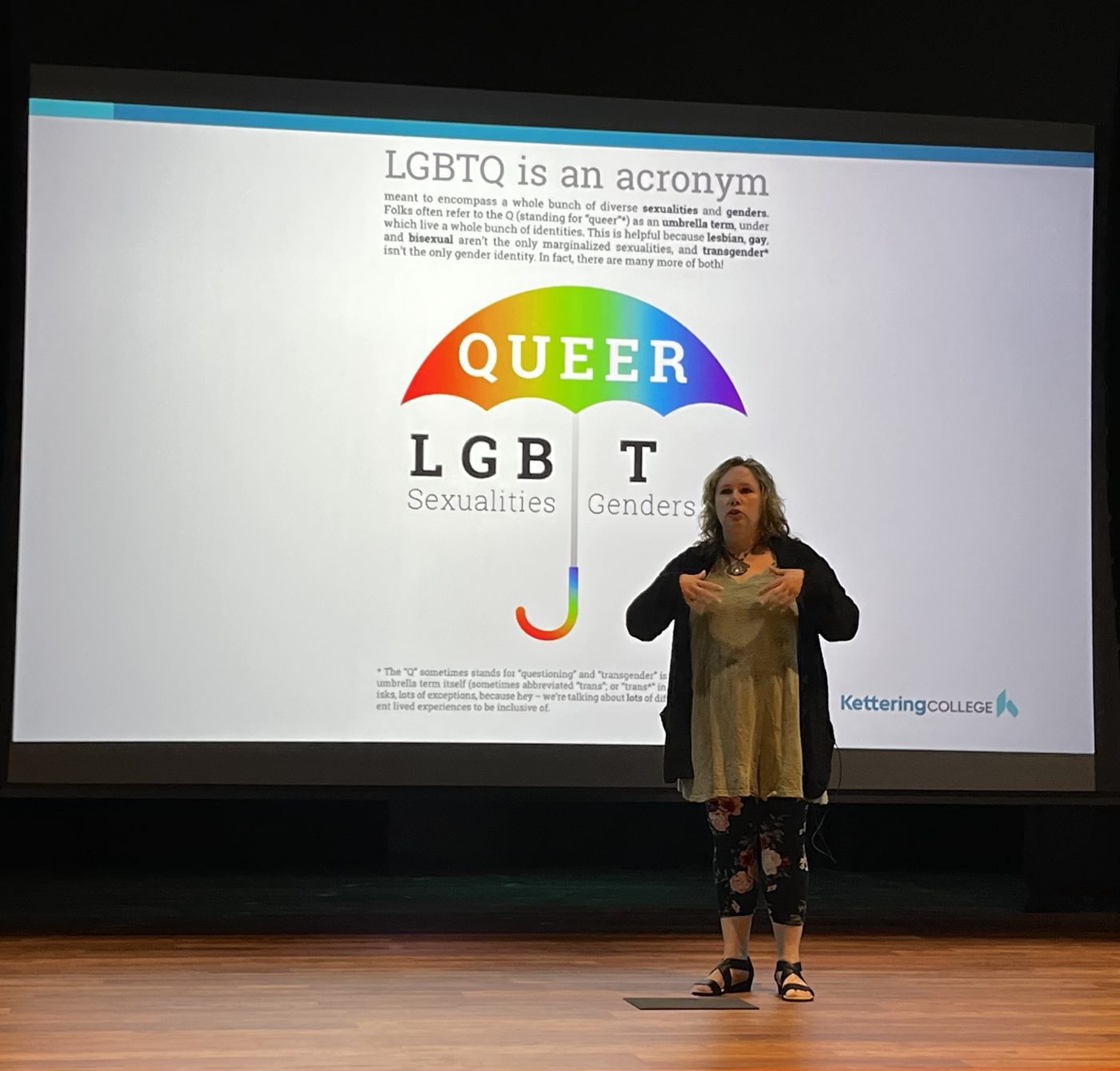

Guest speaker Nadine Cichy, a communication professor at Sinclair Community College, focused her presentation on effective ways healthcare professionals can support individuals in the LGBTQIA+ community. She framed her discussion with a question: “What is something about your identity that you can’t prove or show – you just know it?”
For many, it is often how they feel about themselves and their human experience that can’t be proven even though it exists, but for many more, their human experience gets overshadowed by misconceptions about their self-identity.
“The only way we can know each other is to spend time in dialogue with each other and to be honest with each other.”
Nadine Cichy
She further emphasized that misconception often drives exclusion. Assumptions about gender identity, often rooted in societal constructs, can lead to defensive responses and categorization of LGBTQIA+ individuals. She encouraged the audience to reflect on a personal experience of exclusion and the accompanying emotions that ensued.
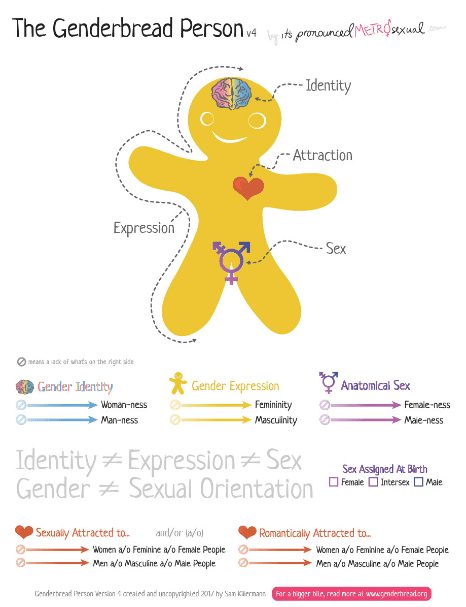

No one likes feeling excluded, and many of the audience responses reflected just that.
Nadine stressed the importance of dialogue and honesty as ways to start breaking down biases and understanding one another. Building trust is vital, as it allows for more meaningful interactions to take place. She says, “The only way we can know each other is to spend time in dialogue with each other and be honest with each other. To do this, we must build up trust.”
In healthcare, navigating discussions on gender identity and medical treatment can be challenging. It requires discerning relevant and appropriate questions while maintaining a respectful balance that upholds patient-centered care and avoids unnecessary vulnerability. Asking questions is acceptable, but it’s important to make sure that questions do not detract from the primary focus of delivering quality patient care or become driven by mere curiosity.
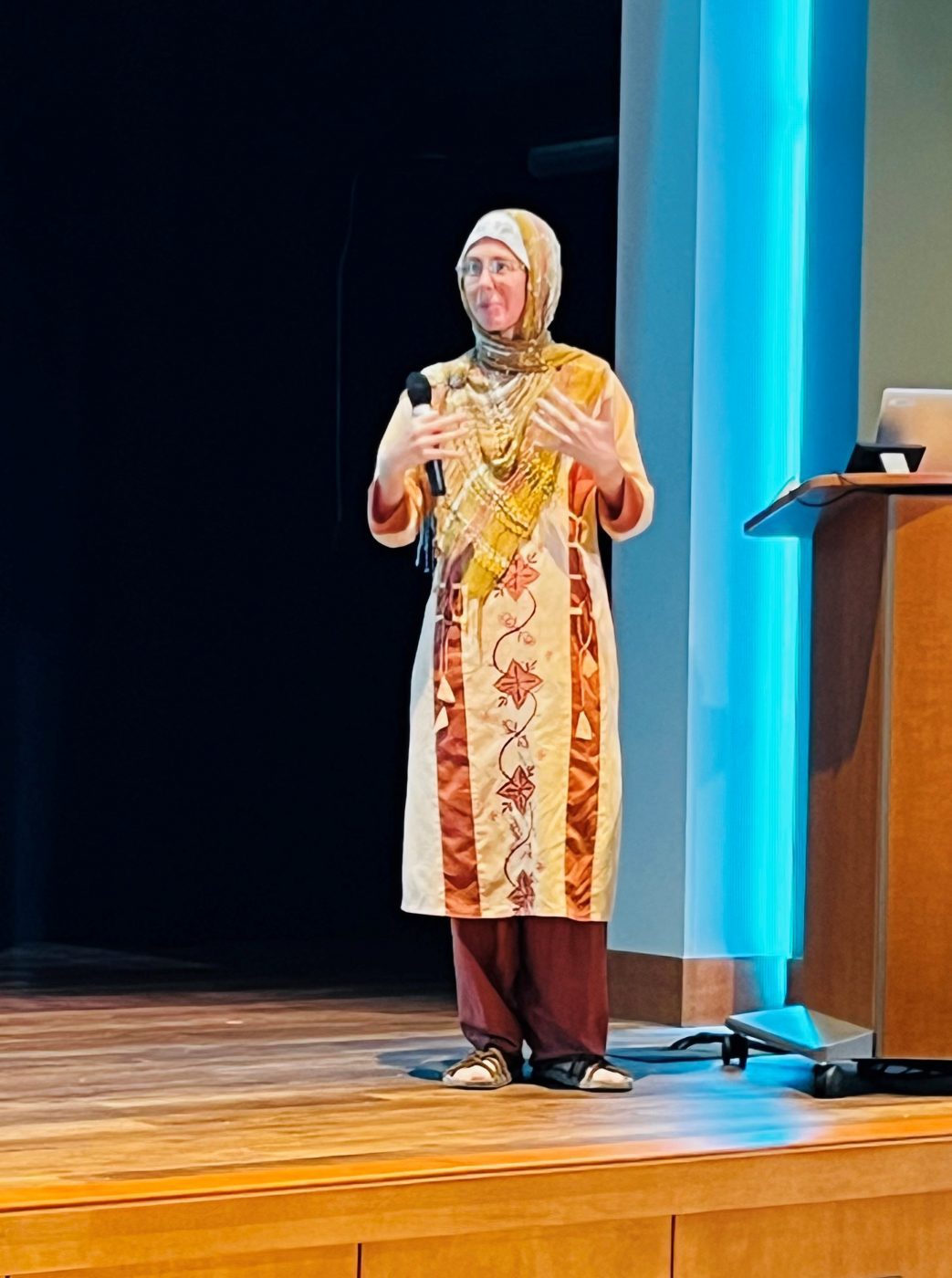

Guest speaker Judy Atlagh, professor of allied health at Sinclair Community College touched on the same idea that we must first ask questions and never assume something about someone else’s human experience or self-expression. As a Muslim woman, she has experienced first-hand the obstacles people of alternative faiths and lifestyles face. She challenged the audience to remember that just like any other group and culture, we can’t assume all Muslims are the same. She said, “If you’ve met one Muslim, you’ve met one Muslim.”
She continued, “Muslims are all just people—when we get down to our core… we all come into a healthcare situation with the expectation of getting a need met… Our job is to be compassionate and curious at the same time.”
“We can’t profile our patients and make assumptions. Approach situations with a degree of neutrality. It’s not about you—it’s about how you’re putting the care in healthcare.”
Judy Atlagh
As healthcare professionals and followers of Christ, we hold the responsibility to provide equitable care to all individuals. Judy said, “We can’t profile our patients and make assumptions. Approach situations with a degree of neutrality. It’s not about you—it’s about how you’re putting the care in healthcare.”
The forum on Monday concluded with the testimonies of two young women, Natalia Alieksandrova and Nataliia Savina, who are currently studying here due to the war in Ukraine. They shared their personal struggles with the impact of the war and the emotional toll of being separated from their loved ones.
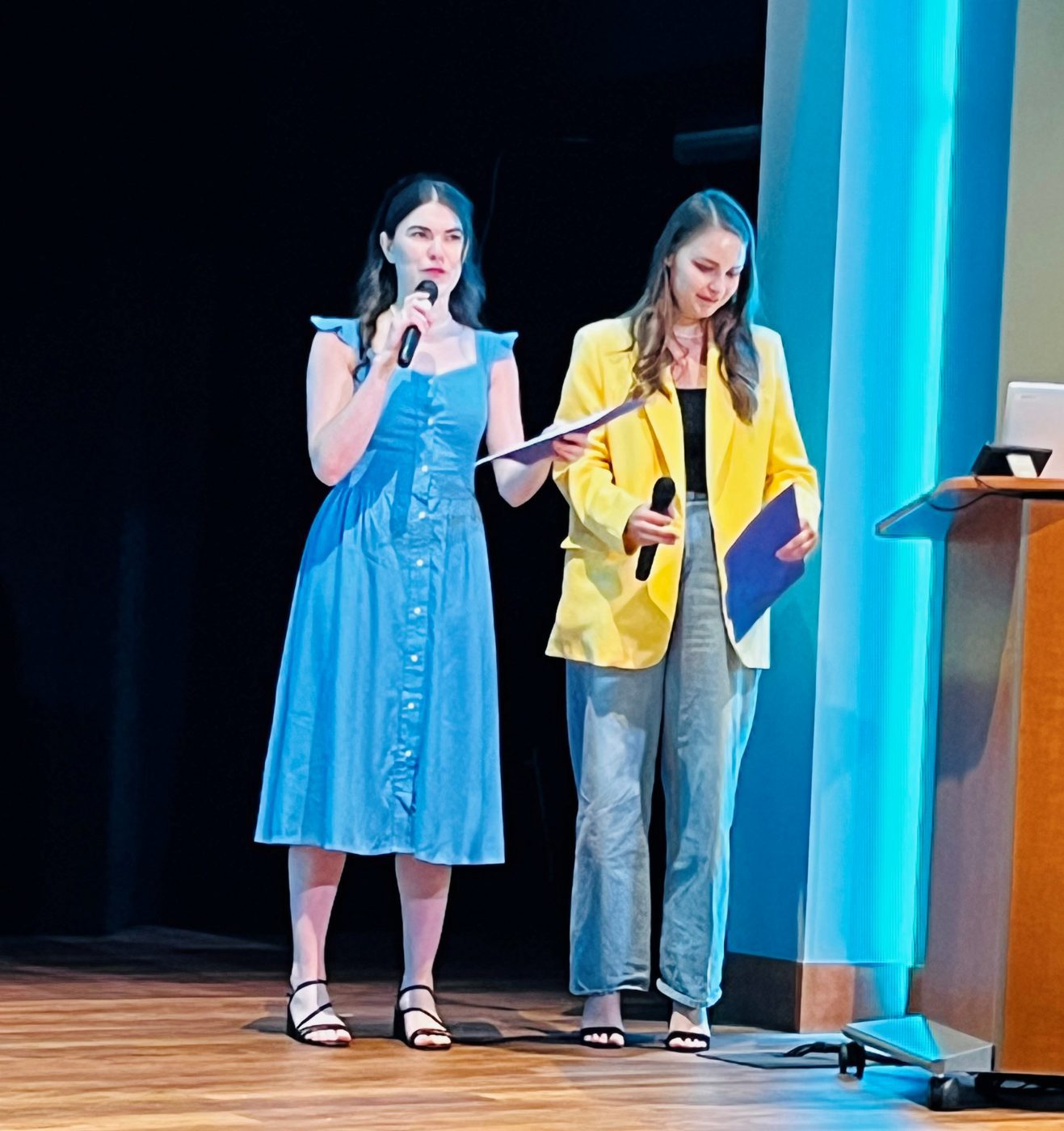

Natalia Alieksandrova, upon realizing her own feelings of sadness could, in fact, be survivor’s guilt, created a survey to help gain insight into how she and her peers are adjusting to life here in the U.S.
Nataliia Savina said, “We became refugees and I had to decide which direction I had to go…I didn’t know if I’d be able to move so far from home.”
While she and other Ukrainian students have found safety at Kettering College, their friends, and family back in Ukraine continue to live in unsafe areas. Both young women described the constant anxiety of waking up each day, waiting to hear news of new attacks and which of their relatives have been affected.
“We don’t say this to make you feel sorry for us. We say this to create understanding between us.”
Natalia Aliesksandrova
Natalia Aliesksandrova said, “When you see us and we aren’t smiling or we don’t want to be a part of social situations, that’s not because we are rude. It’s because we are bearing much more than you can see.” She continued, “We don’t say this to make you feel sorry for us. We say this to create understanding between us.”
These young women, and many others studying abroad, face a multitude of hurdles, often unseen by outsiders. These obstacles include language barriers, cultural differences, and the internal struggle of feeling guilty for being in a safer place. When educating future healthcare providers, it is our duty to teach advocacy for individuals who may not be familiar with our norms and to be vigilant in recognizing signs of emotional distress in those around us.
Whether it is regarding differences in identity, religion, or culture, we have a responsibility to acknowledge that everyone’s journey is unique. The first step towards understanding one another is engaging in open dialogue, being honest, and remembering how it feels to be labeled as “other.”
Print This Page